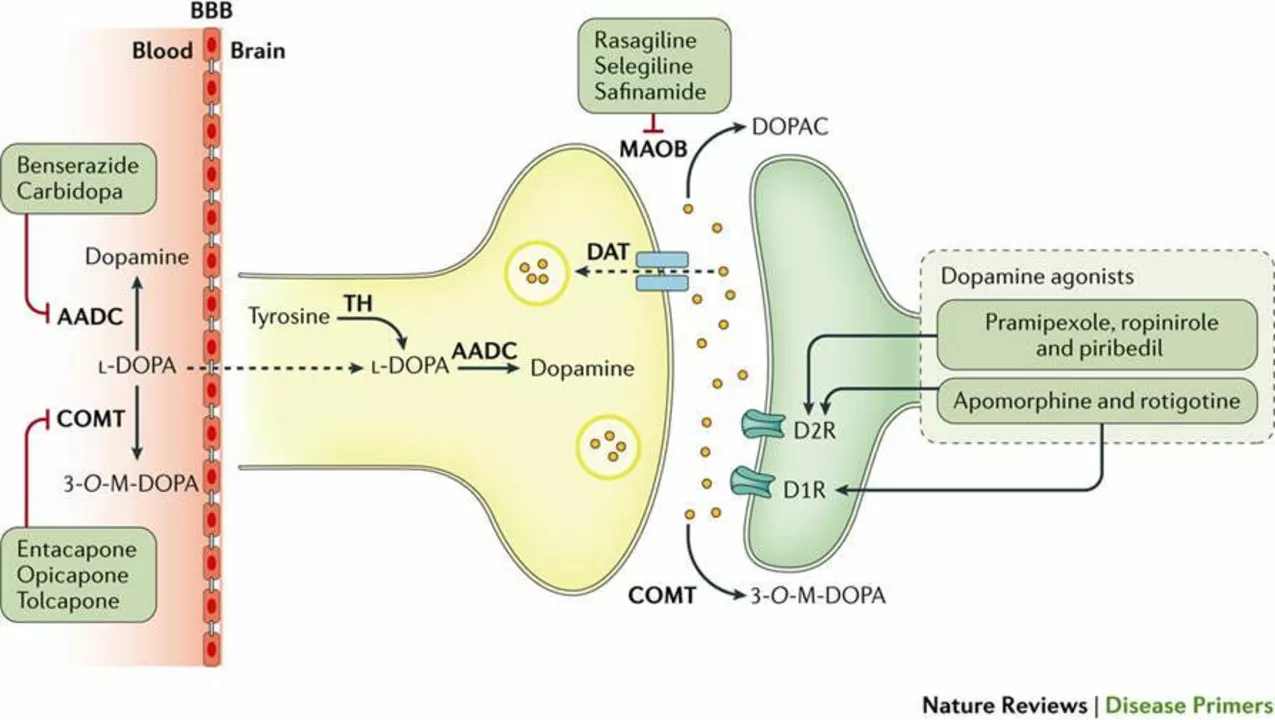Introduction to Tizanidine
As a blogger who is passionate about healthcare and medicine, I am always eager to educate my readers on various medications and how they work. Today, I will be discussing a medication called Tizanidine, a muscle relaxant often prescribed to patients suffering from muscle spasms or tightness. In this article, we will delve into the pharmacology of Tizanidine, exploring how it works and its potential side effects. So, let's get started!
What Is Tizanidine?
Tizanidine is a short-acting muscle relaxant that belongs to the class of medications called alpha-2 adrenergic agonists. It is commonly prescribed to treat muscle spasms or tightness resulting from various conditions, such as multiple sclerosis, spinal cord injury, or other neuromuscular disorders. Tizanidine works by inhibiting nerve signals, which leads to a reduction in muscle activity and, consequently, a decrease in muscle spasms and pain.
How Tizanidine Works on a Molecular Level
Now that we have a basic understanding of what Tizanidine is, let's look at how it works on a molecular level. Tizanidine acts on the central nervous system (CNS) by stimulating alpha-2 adrenergic receptors. These receptors are responsible for inhibiting the release of norepinephrine, a neurotransmitter that plays a crucial role in muscle contraction and pain perception. By inhibiting norepinephrine release, Tizanidine decreases muscle activity and helps to alleviate muscle spasms, tightness, and pain.
Dosage and Administration of Tizanidine
When it comes to dosing Tizanidine, the specific dosage will depend on the patient's individual needs and the severity of their muscle spasms or tightness. Generally, the starting dose of Tizanidine is 2 mg, taken orally as needed up to three times a day. The dosage may be gradually increased by 2-4 mg increments until the desired effect is achieved, with the maximum daily dose not exceeding 36 mg.
It is essential to note that Tizanidine has a short duration of action, meaning its effects wear off relatively quickly. As a result, it is typically prescribed on an as-needed basis, rather than as a long-term, continuous therapy. Additionally, since Tizanidine can cause drowsiness, patients should be cautious when driving or performing tasks that require alertness.
Common Side Effects of Tizanidine
As with any medication, Tizanidine may cause side effects in some patients. Some common side effects associated with Tizanidine include drowsiness, dizziness, dry mouth, constipation, and weakness. Most of these side effects are generally mild and tend to resolve on their own as the body adjusts to the medication. However, if any side effects persist or worsen, patients should consult their healthcare provider for further evaluation and guidance.
Potential Drug Interactions with Tizanidine
It is crucial for patients to inform their healthcare provider of all medications they are currently taking, as Tizanidine may interact with other drugs, leading to potentially harmful effects. Some common drugs that may interact with Tizanidine include certain antibiotics (e.g., ciprofloxacin), blood pressure medications (e.g., clonidine), and medications that affect liver enzymes (e.g., fluvoxamine).
Additionally, Tizanidine may interact with alcohol, increasing the risk of dizziness, drowsiness, and impaired cognitive function. Therefore, patients should avoid or limit alcohol consumption while taking Tizanidine.
Precautions and Contraindications for Tizanidine Use
Before starting Tizanidine, patients should discuss their medical history and any pre-existing conditions with their healthcare provider. Some conditions that may require special consideration or dosage adjustments include liver or kidney disease, low blood pressure, and a history of long QT syndrome.
Furthermore, Tizanidine is not recommended for use during pregnancy or breastfeeding, as its effects on the developing fetus or nursing infant are not well understood. Patients who are pregnant, planning to become pregnant, or breastfeeding should discuss the potential risks and benefits of Tizanidine use with their healthcare provider.
Conclusion
In conclusion, Tizanidine is a medication that can provide relief to those suffering from muscle spasms or tightness due to various neuromuscular conditions. By understanding its pharmacology and how it works, patients can make informed decisions about their treatment options and work closely with their healthcare provider to ensure the optimal therapeutic outcome. As always, any concerns or questions regarding Tizanidine or other medications should be discussed with a healthcare professional. Stay informed, and take control of your health!


Nick Zararis
Tizanidine’s mechanism is so elegant-alpha-2 agonism quietly shuts down the spinal reflex arcs like a dimmer switch on a nervous system that’s stuck on full blast.
I’ve seen patients go from writhing in spasticity to sleeping through the night after a few mg-no opioids, no sedation that feels like a coma.
But man, the dry mouth? Brutal. I always tell folks to keep a water bottle taped to their bedside table.
And don’t even get me started on the drowsiness-it’s not laziness, it’s neurochemistry.
Also, never mix it with fluvoxamine. That’s a one-way ticket to hypotension city, and nobody wants to wake up on the floor because their BP dropped like a rock.
Start low, go slow. Always. Even if you’re desperate for relief.
And yes, it’s short-acting-but that’s why it’s perfect for flare-ups. Not for daily maintenance unless you’re okay with being a zombie from 3 PM to 7 PM.
Also, liver enzymes? Check them. Twice. Once before, once after two weeks. Don’t be that guy.